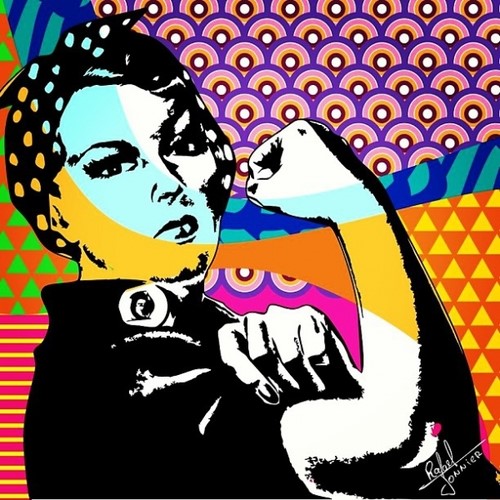IS FEMINISM STILL A RELEVANT NARRATIVE IN 21ST CENTURY LITERATURE?
By Annika Mehta
The 19th and 20th centuries were two of the most important periods of British and international history with respect to female empowerment and equality. However, writing about feminism and women’s perspectives of life was different for female and male writers; several female writers wrote under a pseudonym in order to be taken seriously and to avoid their work being influenced by the prejudices of society. Charlotte Brontë (Currer Bell) and Mary Ann Evans (George Eliot) were among many female writers that employed the use of male pen-names, and, due to the inherent respect given to men over women, this was one of the reasons their work was accepted for publication and survived as great works of literature.
The point at which feminism entered the British literary narrative is a debatable one: it can be argued to have been as early as the late 1600s/early 1700s, with writers such as Mary Astell being some of the first to advocate the idea that women were just as capable of rational thought as men, and just as deserving of education and independence. First published in 1694, her Serious Proposal to the Ladies for the Advancement of their True and Greatest Interest presents a plan for an all-female college where women could pursue a life of scholar and intellectual enrichment. In 1700, Astell published Some Reflections upon Marriage. She wittily critiques the philosophical underpinnings of the institution of marriage in 1700's England, warning women of the dangers of a hasty and irresponsible choice.
Others say that feminism only became a relevant and noticeable narrative in the first half of the 19th century with works such as Pride and Prejudice and even Nathaniel Hawthorn’s The Scarlet Letter whose protagonist, Hester Prynne, has been argued to be one of the strongest female characters in fiction, (although, it should be said that The Scarlet Letter is more a commentary on society as a whole as opposed to a feminist statement). Additional commentators draw attention as late as 1962, when Doris Lessing's The Golden Notebook dramatised the internal conflict women face between work, motherhood, love and sex, as well as the hitherto taboo of the menstrual cycle. It was literature ‘by women, about women, for women.’
It is much harder, however, to name the inflection point at which feminism began to fade out of fiction- or at least stopped being the glaring and pivotal rhetoric of the majority of female-written literature. Somewhere in the last two decades it seems that novelists or their publishing editors had outgrown an overtly feminist-centric narrative, choosing to move away from the uneasy marriage between advocation and polemic in favour of a subtler rhetoric on equality and archaic prejudice as an underlying current in their writing.
Arriving into the contemporary decade, we see the strong feminist narratives picking up, supported by the ever-growing list of political and social movements such as #metoo, #whyIdidntreport, racial equality movements, LGBTQ+ movements and many, many more. With the growing stance of ‘shout or you won’t be heard’ being taken from all sides, feminist literature is coming back full force- all you have to do is walk into Waterstones or Daunt Books and one of the first displays you’ll see will be on feminist literature and/or other political stands being made.
So, herein lies the question- is feminism still a relevant narrative in 21st century literature? Revisiting the debate of female representation in the literary field might now be considered a redundant exercise - in a time where books written by women sweep across all genres of literature and push’n’shove for the most prestigious prizes every year. However, in light of recent events, the Bret Kavanaugh case for example, is the strong narrative surrounding female empowerment and giving a voice to those who may otherwise have kept their suffering to themselves more important than ever? If we as a society are striving for change, for women and men to be able to speak up and be taken seriously, for the ability to rid ourselves of toxic social conventions, then why on earth would we shun a narrative that allows us to do just that?
Literature and writing are still two of the most important mediums of communication, enabling the spread of ideas across not just countries but all over the globe. Indeed, contemporary feminism doesn’t only focus on the plight of women, but that of men too. It can often be forgotten that feminism is first and foremost a movement for equality, not supremacy. Feminist literature and theory addresses causes such as mental health, toxic masculinity, sexuality and transgender rights, as well as the traditional idea of women as equals to men capable of the same themes, emotions and drives as centred in older male focused literature.
So, in this vain, I would argue that ‘Yes, feminism is still a relevant narrative in 21st century literature’ but one that now needn’t be accepted on its novelty value but on its values and merits of literature and content alone as a force that that inspires change and enables the spread of ideas, stories and hope as any great prose inspires.

